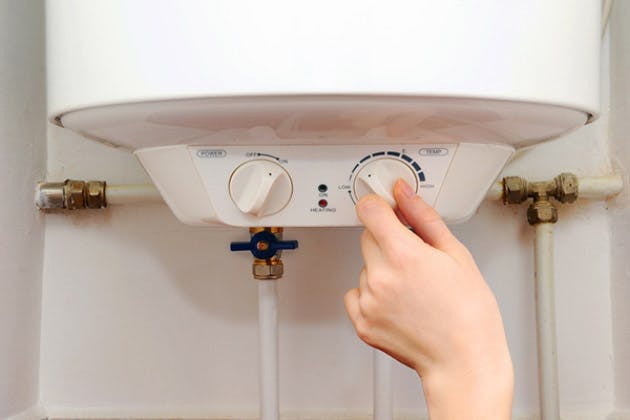Electric boilers are becoming increasingly popular as an alternative to traditional gas or oil boilers. If you’re considering making the switch or simply want to understand more about them, here are some frequently asked questions to help you make an informed decision.
For electric boilers in Birmingham, Solihull, Sutton Coldfield, Tamworth, and nearby areas. Give us a call today at 0121 405 0404 and we'll be happy to help.

Frequently Asked Questions: Electric Boilers
1. What is an electric boiler and how does it work?
An electric boiler uses electricity to heat water, which is then circulated through your central heating system to provide warmth and hot water. Unlike gas boilers, electric boilers don’t burn fossil fuels and are typically smaller and quieter. They work by passing an electric current through a heating element, which heats the water directly.
2. Are electric boilers efficient?
Yes, electric boilers are highly efficient. They convert nearly all the electricity they consume into heat, boasting an efficiency rate of around 99%. This is significantly higher than most gas boilers, which can lose a portion of their energy through exhaust gases. Additionally, if you pair an electric boiler with a renewable energy source like solar panels, you can further reduce your environmental impact and energy costs.
3. What are the benefits of using an electric boiler?
There are several benefits to using an electric boiler:
- Environmentally friendly: Electric boilers produce no emissions during operation, making them a cleaner choice.
- Compact size: Electric boilers are generally smaller than gas boilers, allowing for more flexibility in installation locations.
- Quiet operation: They operate silently, providing a more peaceful environment.
- Lower installation costs: Without the need for flues or gas supply lines, installation is often simpler and less expensive.
- Safety: Electric boilers eliminate the risk of carbon monoxide leaks, enhancing safety.
4. Are there any drawbacks to electric boilers?
While electric boilers have many advantages, there are some drawbacks to consider:
- Running costs: Electricity is typically more expensive than gas, so operating an electric boiler can be costlier.
- Heating capacity: Electric boilers may not be suitable for larger properties with high heating demands. They are ideal for smaller homes or as a supplementary system.
- Power supply: A stable and sufficient electrical supply is necessary for optimal operation, which may be an issue in areas with frequent power cuts.
5. How do I maintain an electric boiler?
Maintenance for electric boilers is generally straightforward. Annual checks by a qualified technician are recommended to ensure all components are functioning correctly. Unlike gas boilers, there are no combustion-related parts that require regular servicing, making maintenance simpler and often less expensive.
6. Can an electric boiler be used with underfloor heating?
Yes, electric boilers are compatible with underfloor heating systems. Their ability to maintain consistent water temperatures makes them an excellent choice for underfloor heating, providing even and efficient warmth throughout your space.
7. What should I consider before switching to an electric boiler?
Before switching to an electric boiler, consider your property’s heating demands, the cost of electricity in your area, and the availability of a suitable installation location. Consulting with a heating specialist can help you determine whether an electric boiler is the best option for your needs.
Speak with an electric boiler expert
If you are looking for electric boiler repairs in Birmingham, Solihull, Sutton Coldfield, Tamworth, and nearby areas, we are here to help. Just give us a call at 0121 405 0404 or use our contact form today.

